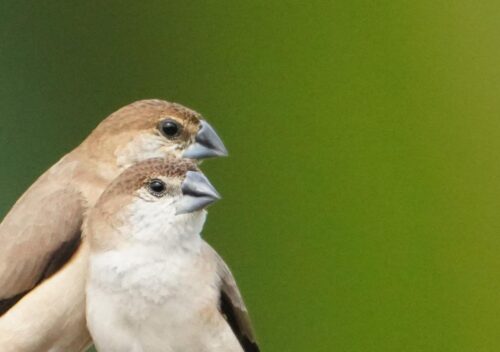Rama Krishna Sangem
Former BRS Rajya Sabha MP J Santosh Kumar chose a pair of house sparrows for his #weekendphotography subjects this Sunday, August 17. He posted four pics of this sparrow pair on X and instantly drew good response from his followers as usual. The pics and birds are beautiful. But, their present condition and future survival is not all that beautiful. These house sparrows are in danger, from humans, unfortunately. Santosh’s pics are a reminder to us all this grim reality.
House Sparrow is strongly associated with human habitation, and can live in urban or rural settings. Though found in widely varied habitats and climates, it typically avoids extensive woodlands, grasslands, polar regions, and hot, dry deserts far away from human development. For sustenance, the house sparrow routinely feeds at home and public bird feeding stations, but naturally feeds on the seeds of grains, flowering plants and weeds. However, it is an opportunistic, omnivorous eater, and commonly catches invertebrates such as insects and their larvae, caterpillars, and many other natural foods.
Most house sparrow vocalisations are variations on its short and frequent chirping call. Transcribed as chirrup, tschilp, or philip, this note is made as a contact call by flocking or resting birds; or by males to proclaim nest ownership and invite pairing.
Because of its numbers, ubiquity, and association with human settlements, the house sparrow is culturally prominent. It is extensively, and usually unsuccessfully, persecuted as an agricultural pest. It has also often been kept as a pet, as well as being a food item and a symbol of lust, sexual potency, commonness, and vulgarity. Though it is widespread and abundant, its numbers have declined in some areas. The bird’s conservation status is listed as least concern on the IUCN Red List.
World Sparrow Day, March 20
World Sparrow Day is a day designated to raise awareness of the house sparrow and then other common birds to urban environments, and of threats to their populations, observed on 20 March. It is an international initiative by the Nature Forever Society of India in collaboration with the Eco-Sys Action Foundation (France) and numerous other national and international organisations across the world. We need not wait till March 20 to care about these house sparrows. It’s time for us to get cracking!


